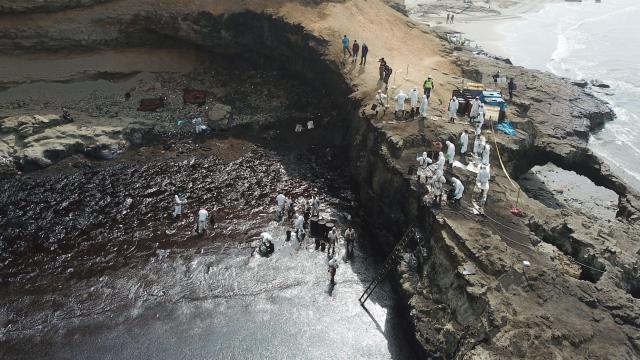Pollution continues to be a huge global killer. A new report this week estimates that pollution contributed to 9 million early deaths worldwide in 2019, often from air pollution. The latest figures are unchanged from recent past annual estimates, and the authors lament that little has been done to mitigate the well-known harm of these pollutants during that time.
Pollution can have all sorts of acute and chronic health risks, though they can vary depending on the exact pollutant, duration, and route of exposure. Air pollution in particular is known to raise the risk of severe asthma episodes, cardiovascular conditions like heart attacks, and slow-developing health problems like lung cancer. These risks can be passed onto the next generation as well, since higher levels of exposure during pregnancy can increase the chances of premature birth and other complications.
The findings, published Tuesday in The Lancet Planetary Health, are an update to a 2017 report conducted by the Lancet Commission on Pollution and Health. That report used data from the Global Burden of Disease study to estimate that pollution helped prematurely kill 9 million people in 2015. The new study not only estimates the pollution-related deaths in 2019 but also tracks the relative mortality caused by different forms of pollution over the past 20 years.
Since 2000, there have been some subtle shifts. People are now dying less from so-called traditional types of pollution, such as unsafe water or household air pollution, largely thanks to improvements in sanitation and health care access. But this decrease has been entirely off-set by increases in deaths from industrial pollution, the authors say — the kind that releases damaging aerosol particles widely into the outdoors, along with contaminants like lead and other chemicals. This outdoor air pollution, also known as ambient air pollution, contributed to 4.5 million deaths in 2019, up from 2.9 million deaths in 2000.
Air pollution in general killed more than 6 million people in 2019, the report found. And overall, the 9 million deaths attributed to pollution in 2019 accounted for about one in every six deaths that year. But these deaths were not equally felt globally, with over 90% occurring in low-to-middle income countries.
“The health impacts of pollution remain enormous, and low- and middle-income countries bear the brunt of this burden. Despite its enormous health, social and economic impacts, pollution prevention is largely overlooked in the international development agenda,” said lead author Richard Fuller, co-chair of the Lancet Commission on pollution & health, in a statement from the Lancet.
The preventable loss of life is bad enough, but the authors point out that these harms cause ripples everywhere. The economic cost of these deaths in 2019 was $US4.6 ($6) trillion in U.S. dollars, they estimated, or about 6.2% of that year’s global economic output. And doing more about pollution would pay off elsewhere, since many sources also contribute to higher greenhouse emissions and the worsening of climate change. Pollution isn’t great for wildlife either, further threatening the extinction of many species. Yet so far, there hasn’t been much momentum to significantly combat the issue.
“Attention and funding has only minimally increased since 2015, despite well-documented increases in public concern about pollution and its health effects,” Fuller noted.
The authors do lay out some recommendations for governments, industries, and other parties to adopt, such as increased funding for pollution control programs and the formation of an international panel of experts to regularly study and monitor the pollution problem, similar to the Intergovernmental Panel on Climate Change.
Editor’s Note: Release dates within this article are based in the U.S., but will be updated with local Australian dates as soon as we know more.
